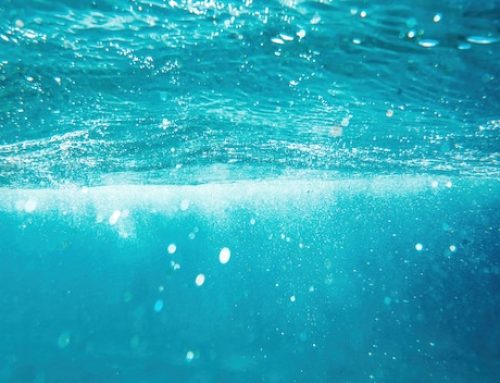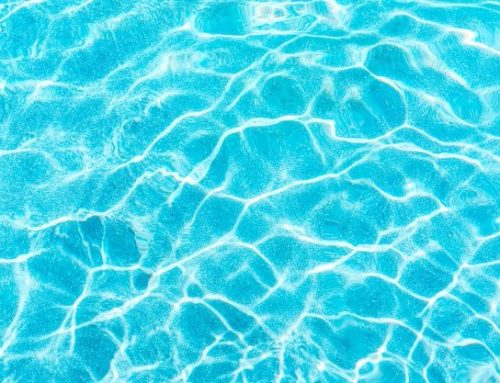The Link Between Swimming and Yellow Teeth
Swimming is a popular summer sport, especially for those living near the ocean or with access to a pool. However, swimmers have long been puzzled by a peculiar phenomenon – yellowing of teeth. While it may seem like the two are unrelated, studies have shown that there is indeed a correlation between swimming and yellow teeth.
The Science Behind It
Chlorine is a common disinfectant used in swimming pools to keep them free of harmful bacteria. However, when chlorine comes into contact with organic matter like sweat and urine, it forms chloramines. These compounds have a strong odor and are responsible for the familiar “pool smell.” But that’s not all – they can also cause discoloration of teeth.
A study published in the journal of the American Academy of Pediatrics found that competitive swimmers had a higher risk of developing yellow teeth due to the prolonged exposure to chlorinated water. The study noted that swimmers who trained for more than six hours per week had a 39% higher risk of discolored teeth than their non-swimming peers.
Teeth discoloured like a swimmer’s
People who want a snow-white smile should also avoid too frequent visits to the pool. It turns out that with the amount of time spent in the pool, the risk of discolouration of our teeth increases. A minimum of min. 6 hours a week spent in the pool is enough to lead to the formation of unsightly stains on teeth. This problem mainly affects adults, but there are also cases among teenagers or even children.
The American Academy of General Dentistry has described this phenomenon by calling it ‘swimmer’s teeth’. This is a direct result of the fact that contact between teeth and pool water promotes the formation of numerous stains, often similar to those from smoking.
– So-called swimmer’s teeth are a common ailment among regular pool-goers, and a plague affecting professional swimmers who spend most of their time in the water. The antimicrobial agents found in swimming pool water have a higher pH than human saliva, so when they come into contact with our teeth, they lead to brown and yellow stains. Even the best dental hygiene will not help, the only solution is professional tartar removal during a scaling or sandblasting procedure. For an even better effect of whiteness, we can opt for teeth whitening at the dentist – with the lamp or overlay method, the expert advises.
Prevention and Treatment
While swimming may be the cause of yellowed teeth, there are ways to prevent and treat the condition. One is to practice good oral hygiene, such as brushing teeth regularly and flossing. Another is to limit exposure to chlorinated water by wearing a mouthguard or using a nose clip while swimming.
Experts advise that the best way to avoid the dangers is to be careful, i.e. to swim with your mouth closed so that water does not enter your mouth. Fluoridation, i.e. a professional treatment carried out at the dentist’s office, will also help. They will also facilitate the remineralisation of teeth, reduce sensitivity, the risk of discolouration or decay. Dentists, on the other hand, warn against brushing your teeth as soon as you get out of the pool. Pools that look suspicious and whose condition is not monitored should also be avoided.
Rusty ladders and handrails are not a very good omen for our teeth. If this is the case, consider ozonated pools, which keep the use of chlorine to a minimum. Ozone filtration is a milder but equally effective method of disinfection. Besides, a swimming pool pass is not the best option for people whose teeth are in poor condition or suffer from gum disease.
There are also several treatments available for those already affected by yellow teeth. Teeth whitening options like professional teeth whitening or at-home kits can help to remove surface stains. But for more severe cases, dental bonding or veneers may be necessary.
The Importance of Oral Health
The link between swimming and yellow teeth highlights the importance of maintaining good oral health. Teeth that are discolored can impact one’s self-confidence and overall appearance. Additionally, poor oral health has been linked to a range of health issues like heart disease and diabetes.
Frequently Asked Questions
Can yellow teeth be reversed?
Yes, yellow teeth can be reversed with various treatments like professional teeth whitening or dental bonding.
Can chlorine cause other dental issues?
Yes, excessive exposure to chlorine can lead to enamel erosion, sensitivity, and gum irritation.
How does chlorine affect our teeth?
Chlorine in high concentrations softens the enamel, leads to enamel damage and causes sensitisation of the teeth. It also dries out the mucous membrane, thus contributing to irritation. Contact with chlorinated water can affect the colour of teeth – too frequent visits to the pool can result in discolouration in the form of yellow or even brown stains! As little as 6 hours a week spent in the swimming pool gives noticeable signs of the adverse effects of chlorine on dental health.
Is it safe to swim in chlorinated water?
Swimming in chlorinated water is generally safe, but it’s important to practice good oral hygiene and limit exposure to chloramines.
How can we prevent the negative effects of chlorine?
We are not in favour of stopping the use of swimming pools and the forms of exercise they offer. However, we do recommend frequent check-ups with your dentist so that you can react more quickly to emerging risks. For regular swimmers, visits are recommended at least once every three months. For those who use swimming pools during the holiday season, a check-up visit before the holiday (to help prevent possible painful situations during the holiday) and immediately after the holiday (to verify whether any worrying changes have occurred in the mouth during the holiday exposure to chlorine) is recommended.
Those who have developed discolouration as a result of frequent contact with chlorinated water can benefit from teeth whitening and sandblasting, as well as fluoridation, which strengthens the enamel and provides a barrier against the acids attacking it.
Those who swim regularly and who suffer from frequent diseases of the teeth and gums should try to choose swimming pools where the water is filtered with less harmful ozone. Similar recommendations apply to pregnant women.
To combat chlorine – brushing teeth immediately after leaving the pool is discouraged. The enamel is already softened by then and brushing could cause additional mechanical damage. Within half an hour of finishing swimming, you can rinse your mouth with mineral water and chew sugar-free gum to improve your oral pH.
Conclusion
While swimming is a fun and healthy activity, it’s important to be aware of the potential impact it can have on one’s oral health. By practicing good oral hygiene and limiting exposure to chlorinated water, swimmers can prevent yellow teeth and other dental issues. Remember, a healthy smile is a happy smile!






